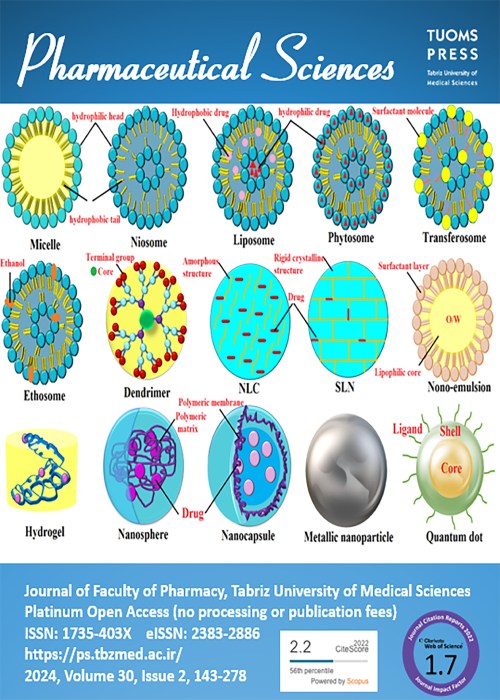Chromatographic Separation of Biomolecules Using Polymer/Surfactant Aqueous Two Phase System
Author(s):
Abstract:
The main drawbacks of 3-step tedious and cumbersome downstream processing of biomolecules includes complex procedural steps, production of excessive amount of by-products, huge amount of energy consumption and inefficient with respect to purity, yield and selectivity. In order to overcome the limitations of downstream processing, aqueous two-phase systems (ATPS) have been applied as alternative, competent and environmentally benign approach (free of toxic organic solvents) for the separation and refinement of biomolecules from varying matrixes. ATPS method has the inherent properties such as versatility, highly productive, economical, better purity profile, selectivity and rapid mass transfer rates. It has achieved the position of leading technique in the last decade for separation and purification of enzymes, drugs, antioxidants, amino acids and antibiotics. These systems are usually formed by chemical entities that segregate into two different phases when mixed in specific ranges of composition and temperature e.g. by either mixing two polymers in aqueous media or by a polymer with an inorganic salt or a polymer with an organic salt
Keywords:
Language:
English
Published:
Pharmaceutical Sciences, Volume:20 Issue: 3, Dec 2014
Pages:
77 to 79
magiran.com/p1356454
دانلود و مطالعه متن این مقاله با یکی از روشهای زیر امکان پذیر است:
اشتراک شخصی
با عضویت و پرداخت آنلاین حق اشتراک یکساله به مبلغ 1,390,000ريال میتوانید 70 عنوان مطلب دانلود کنید!
اشتراک سازمانی
به کتابخانه دانشگاه یا محل کار خود پیشنهاد کنید تا اشتراک سازمانی این پایگاه را برای دسترسی نامحدود همه کاربران به متن مطالب تهیه نمایند!
توجه!
- حق عضویت دریافتی صرف حمایت از نشریات عضو و نگهداری، تکمیل و توسعه مگیران میشود.
- پرداخت حق اشتراک و دانلود مقالات اجازه بازنشر آن در سایر رسانههای چاپی و دیجیتال را به کاربر نمیدهد.
In order to view content subscription is required
Personal subscription
Subscribe magiran.com for 70 € euros via PayPal and download 70 articles during a year.
Organization subscription
Please contact us to subscribe your university or library for unlimited access!


